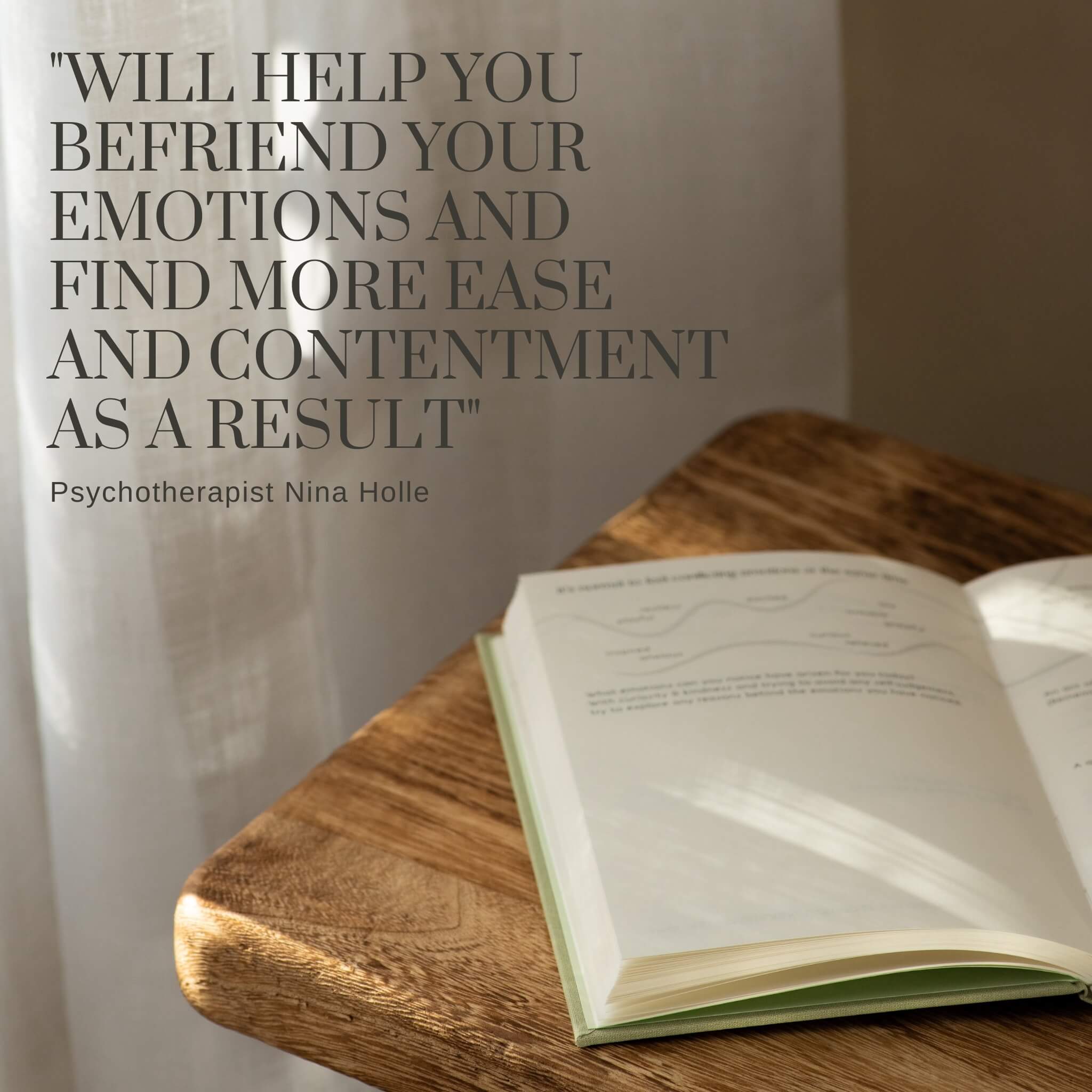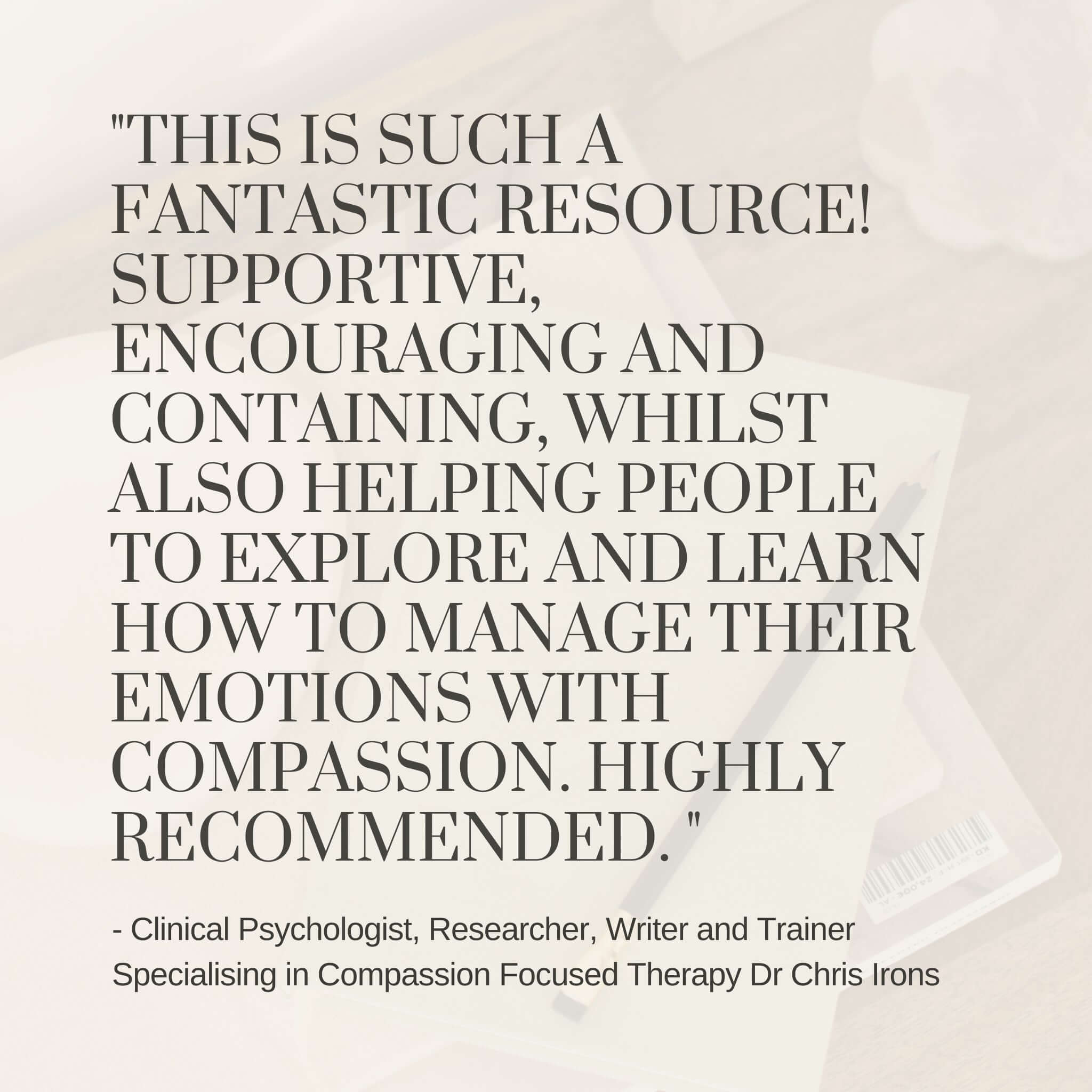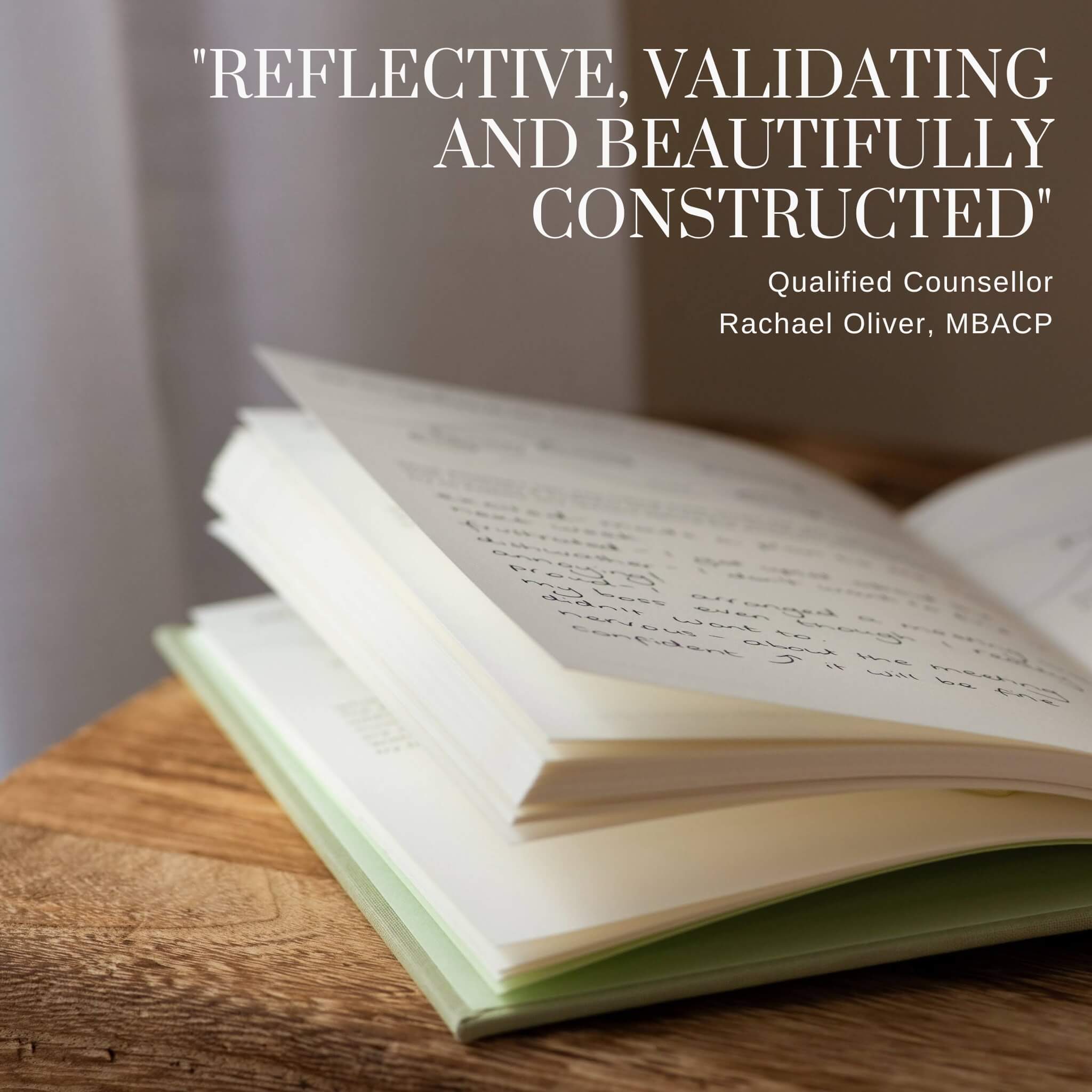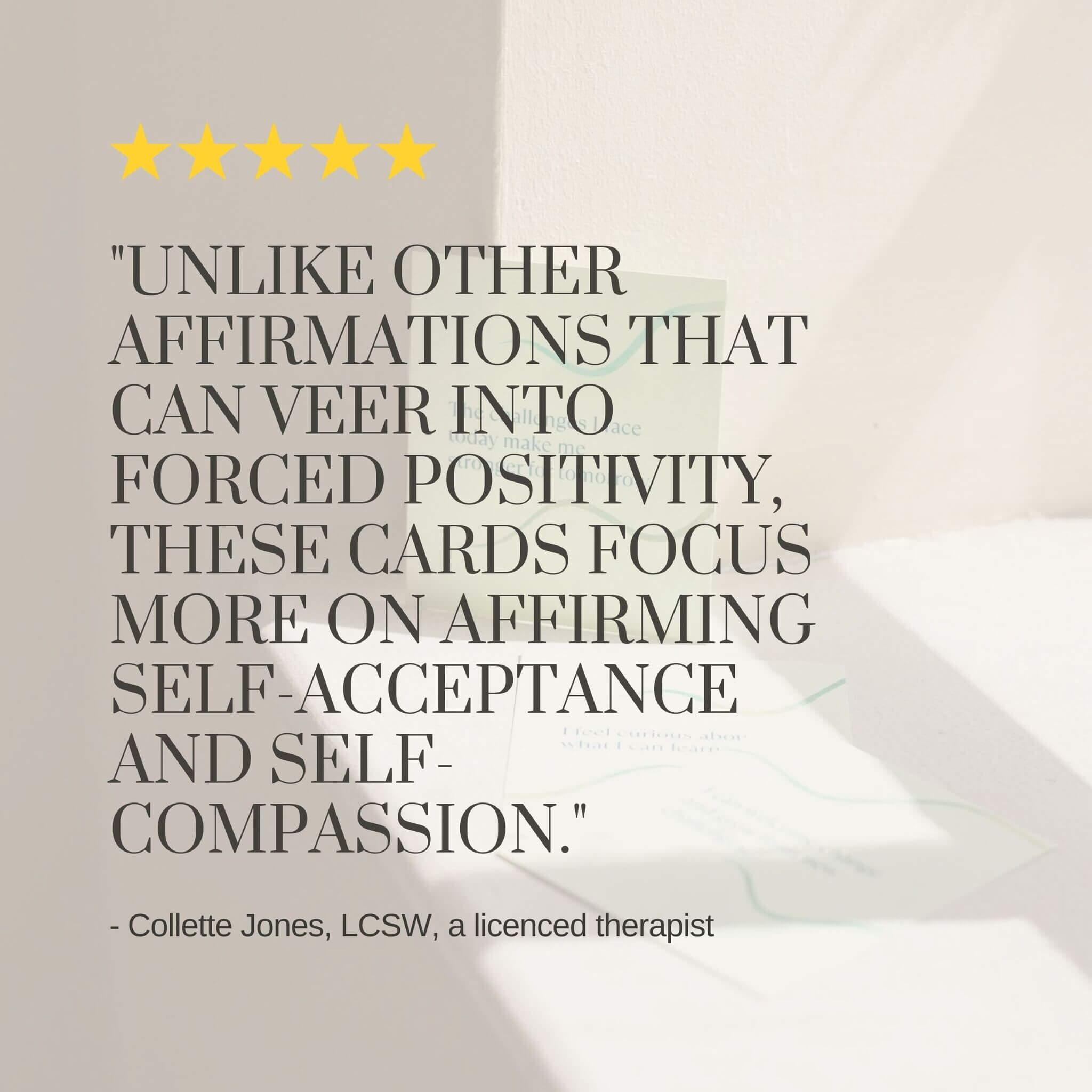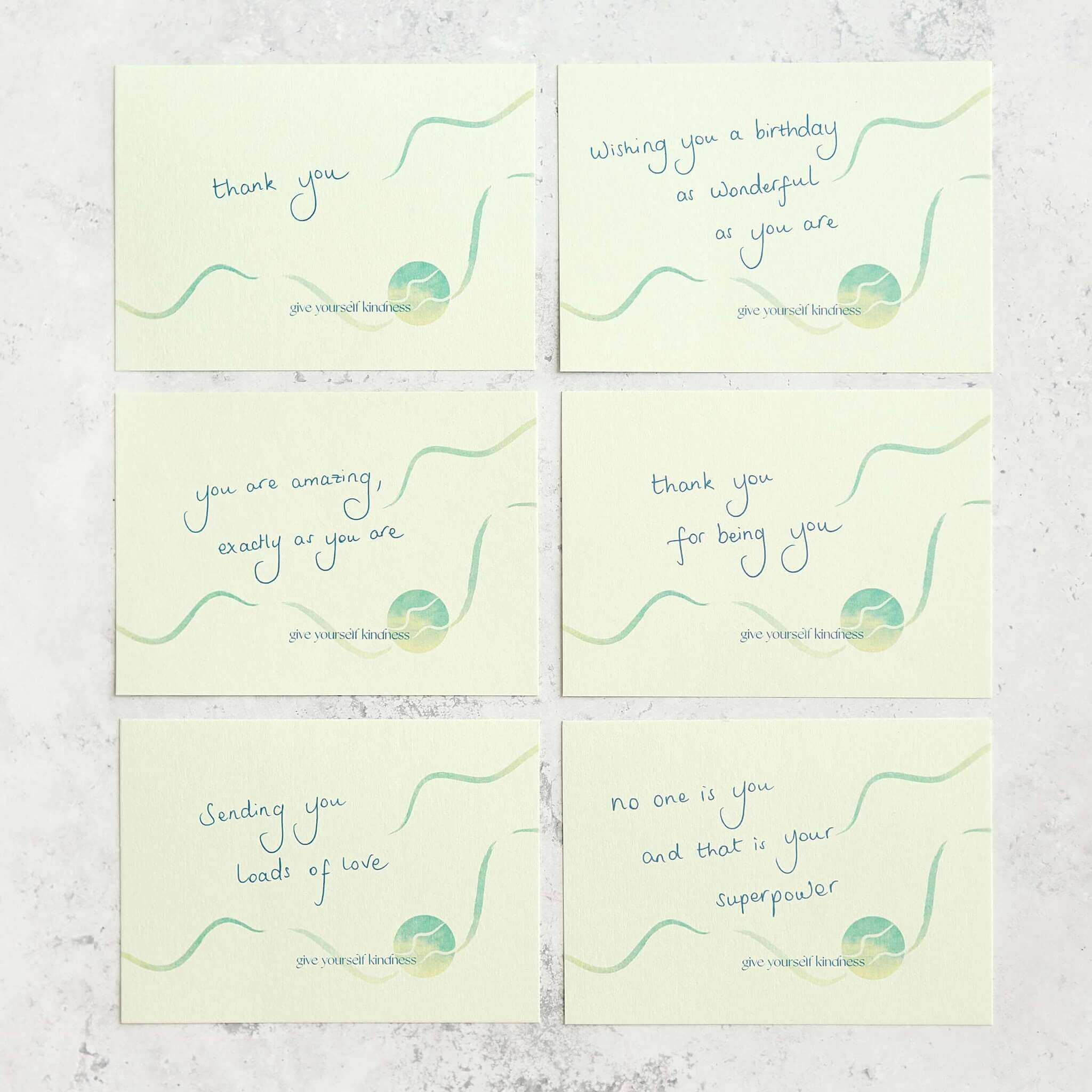written exclusively for Give Yourself Kindness by Collette Jones, LCSW a private practice owner and therapist licensed in the state of New York that specializes in working with teens and adults struggling with perfectionism and high functioning anxiety.
What is perfectionism?
Perfectionism is a trait that is often seen as a positive quality, as it can lead to high achievement and perceived success.
However, the excessively high standards that a perfectionist sets for themselves often lead to feelings of shame, burnout, anxiety, and poor self-worth. It can leave us on a never ending hamster wheel of disappointment.
In order to overcome these excessively high standards, it is important to be able to learn how to practice self-compassion.
The telltale signs of perfectionism
- Never feeling good enough despite past accomplishments due to constantly striving for more and more.
- Excessively high standards that feel impossible to meet without impacting other areas of your life.
- Procrastination due to feeling the need to put things off until you have the time or ability to start or execute it perfectly.
- Avoiding challenges or new things for fear of failing or not being good enough.
- Consider the part of you that feels guilty. What is that part trying to protect you from?
- Struggles with delegating tasks.
- Fear of asking for help.
- Feelings of guilt and shame.
- Hiding struggles from others.
- Overthinking.
- Anxiety.
- Burnout.
- People-pleasing behaviors.
- Overly critical of oneself and/or others.
Why self-compassion?
Self-compassion is the practice of having empathy and understanding for oneself, especially in times of struggle or failure.
Self-compassion is important in battling perfectionism because it allows you to let go of unrealistic standards and be more accepting of one’s imperfection and humanness.
To work towards unburdening oneself from perfectionistic tendencies and cultivating self-compassion, it is important to recognize and challenge your inner critic when these thoughts and feelings come up.
6 tips for using self-compassion to overcome perfectionism
1. Watch the way you're speaking to yourself
Oftentimes we don’t even notice all the thoughts going through our heads and how many of those thoughts are us speaking negatively about ourselves.
Things like,
- “How could I not have realized that?”
- “Why did I let that bother me?”
- “I should be over this already.”
- “I’m so stupid.”
- “That’s probably a dumb question.”
- “I should have been able to do this.”
We have these thoughts running through our heads all day and we don’t realize that our minds and our bodies are listening. It could be an off-handed comment. You don’t even have to say it out loud, for it to impact us.
It’s important we realize when we have these thoughts, so we can assess whether these thoughts are even true.
2. Assess the validity of these thoughts
- Are these thoughts based on my own expectations or someone else’s?
- Are these thoughts true?
- Do I have to hold these thoughts as true?
- Is there another way I can look at the situation?
- Am I holding myself to an unrealistic expectation?
- Is it serving me to continue to hold myself to this standard or is it causing me harm in some way?
These questions help to breed self-compassion. It allows us space to identify where these thoughts and feelings about ourselves are coming from.
Questioning our thoughts allows us to decide if we need to continue to hold space for them.
3. Reframe your thoughts through the lens of knowing that you are human person who is allowed to make mistakes
Of course you will speak negatively to yourself if your standard is that:
When you notice yourself being overly self-critical, try to reframe your thoughts in a more compassionate and understanding way.
Remind yourself that it is okay to make mistakes and that failure is a natural part of the learning process.
If that is how you now understand the world, these mistakes and mishaps no longer hold as much weight.
Look through all those examples of critical self-talk. Do they sound like you? If so, do you really think that they’re true? If so, where does that belief come from? Yourself? Your family? Your social circle? The media? No matter where it comes from, you can decide if you continue to hold that belief.
4. Failure is a part of the process that we learn and grow from
Part of the human experience is to be resilient. It’s impossible for everything to work out the way we want or expect all the time.
Self-compassion isn’t only being kind to ourselves. It’s seeing the reality that we all must redirect or sometimes take a detour to get where we want to go.
Roadblocks aren’t stop signs, they’re detours. You can’t control your way into everything working out just the way you want. And because that’s impossible, it’s important to see mess ups, mistakes, and failures with curiosity:
- Why did this not work out?
- Was this something that was reasonably even within my control?
- How can I learn a lesson from this and do differently next time?
Questioning why something did or didn’t happen, doesn’t have to come from anger, frustration, or self loathing. Just a genuine curiosity of how to improve and grown from it.
Many of the most successful people in the world failed MANY times before they succeeded. They weren’t superhuman, they just got used to failure being a part of the process. They learned more along the way with each failure, until they found their success.
5. Get support from others and be vulnerable about your struggles
You may wonder how sharing your struggles and pitfalls with others can grow self-compassion. Perfectionism is often a silent struggle. Because we want others to see us as perfect, many people suffer in silence and don’t realize WE ALL suffer from insecurities, need help sometimes, and don’t have it all figured out. How uplifting it is to know we’re all in the same boat and not alone.
This is why when others know our struggles and can show us compassion and empathy it helps act as a model of how it’s possible to react to ourselves.
That being said, there may come times where the unrealistic expectations of others can creep in. In these moments, it’s important to still run those expectations of others through the same filter. You don’t have to be guided by the expectations of others either and will have to assess the validity of the thoughts of others along the way. You don’t have to believe every belief someone else has about you and your life.
6. Take time to do things for yourself that aren't just attached to productivity
Newsflash: you’re allowed to do things that you WANT to do and not just things you need to do.
Burnout happens when you’re guided too much by your desire for productivity and don’t include any joy into the equation.
Schedule in time for your own interests. How is this related to self-compassion? Often people do things they enjoy as a reward for productivity or completing a task. This makes it seem like your interests and hobbies only serve as a reward and that hard work is a punishment. Take steps to put yourself first and no longer see things you love as a reward. You’re allowed to do things you love just because you want to.
It's okay to find self-compassion a challenge: you are not alone
Please keep in mind, these are just some tools to use when struggling with perfectionism. As stated, it’s often hard for people struggling to ask for help. If you find that self-compassion has been a hard thing to implement on your own, it’s always okay to reach out to a mental health provider who can guide you on this journey and help you break free from the cycle of self-criticism. You don’t have to suffer alone.
Collette Jones, LCSW is a private practice owner and therapist licensed in the state of New York that specializes in working with teens and adults struggling with perfectionism and high functioning anxiety. Collette is proficient in using Cognitive Behavioral Therapy and Mindfulness based techniques to help clients develop tools to be able to leave behind constant stress, anxiety, panic, and overwhelm.


















